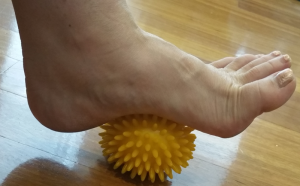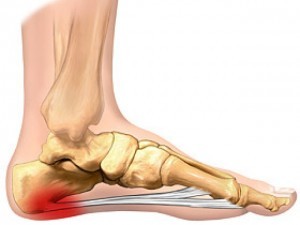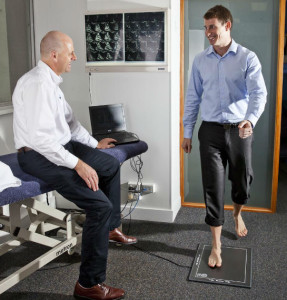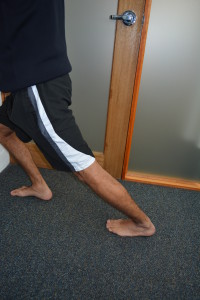I have a sore heel when I first walk in the morning?
What have I done?
Unfortunately, the most common pain under the foot at the heel is a condition called plantar fasciitis. The plantar fascia is a thick fibrous band that originates at your heel and travels under your foot to your toes. This band supports your arch of your foot and provides dynamic shock absorption.
When this band is overstretched, there is microtearing commonly at the attachment to the heel leading to pain. The most common foot types that predispose people to this condition are either the flat foot (pronated foot) or the high arched foot.
The typical symptoms of plantar fasciitis are;
- Pain worse in the morning – often the first few steps out of bed
- Pain with standing long periods
- Tenderness to touch at the heel
Predisposing factors to developing plantar fasciitis are:
- Flat feet or high arches (pes planus or pes cavus)
- Activities requiring a lot of ankle push off such as running or dancing
- In appropriate or non-supportive footwear
- Ankle stiffness, especially due to tight calf muscles
- Excessive time standing
- Obesity Poor hip strength and control, particularly in the gluteal muscles
- Diagnosis is often via clinical diagnosis including your history and objective examination.
- Chronic plantar fasciitis may need further investigation to confirm the diagnosis or rule out less common causes of heel pain. We would normally refer our client back to either their GP or to a Sports Medicine Doctor for this if needed.
How can All Care help?
The most important part of the initial examination is to assess the predisposing factors that have led the client to suffer heel pain.
We use our Gaitscan system to analyse the client’s foot and lower leg foot mechanics to analyse the potential causes of why this condition has occurred in the first place.
Treatment often includes ;
- Taping the foot to reduce pain
- Plantar fascia stretching and self-release techniques (pictured)

- Correction of any foot, knee and hip abnormalities
- Strengthening and stretching program, particularly of the calf, hamstring, gluteal and foot muscles
- Gait scan – foot assessment on force platform to assess your lower limb biomechanics
- Advice on activities to avoid and appropriate footwear
The time to recovery for plantar fasciitis is variable but experience at All Care has shown significant relief at 6 to 8 weeks. Chronic plantar fascia symptoms will take longer.





